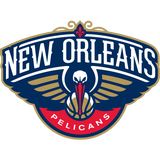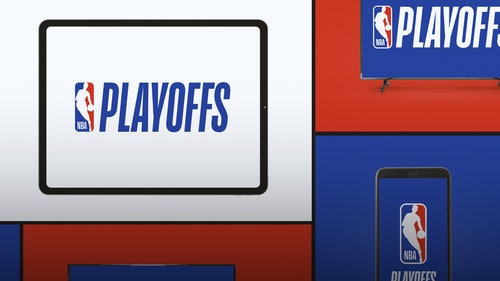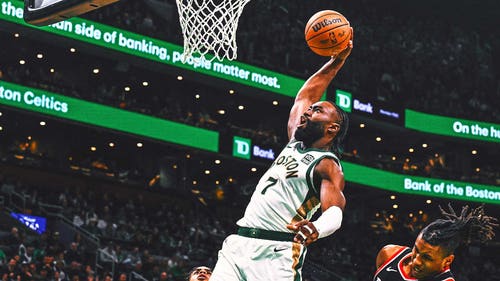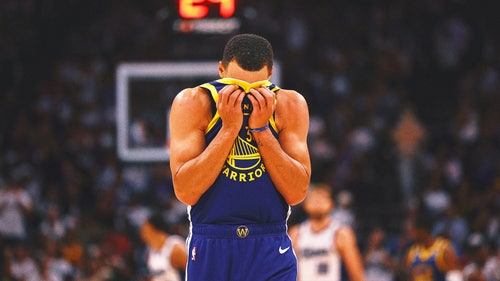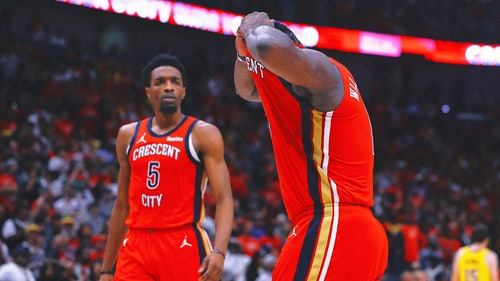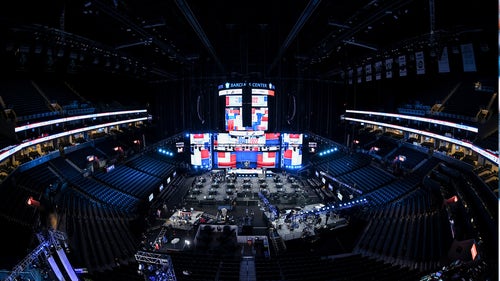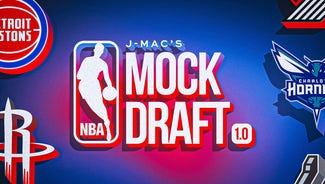
NBA Trade Deadline Winners And Losers
This year’s best midseason trade action happened early: DeMarcus Cousins, Serge Ibaka and Lou Williams were all dealt in advance of Thursday’s 3 p.m. ET deadline, leaving role players like Taj Gibson and P.J. Tucker as the biggest names to move right before the buzzer. Don’t mistake the lack of a late flurry for an uneventful deadline: Cousins’s deal qualifies as a blockbuster, the Raptors made two strong moves to bolster their contender status, and the race for the West’s last playoff spot got far more intriguing, among other storylines.
Here’s a full rundown of the activity—and inactivity—with an eye towards naming this year’s trade deadline winners and losers.

Losers: Sixers
Facing a holdover frontcourt logjam from the Sam Hinkie era, the Sixers’ new regime was forced to settle for something like its fifth backup plan. Plan A should have been to see whether franchise center Joel Embiid could pair effectively with either Nerlens Noel or Jahlil Okafor. In part due to Embiid’s injury issues, neither pairing saw significant time together. Plan B should have been to sell high on Okafor, an anachronistic center, before his entire market dried up. That didn’t happen despite mountains of on-court evidence that he can’t guard a chair and months of rumors that led to him staying home from a game before a deadline, only for the possible deal to fall through. Plan C should have been to apologize to Noel for wasting years of his life during The Process and then sell on a valued long-term role as Embiid’s defensive-minded running buddy. That apparently proved impossible or Noel’s asking price next summer looked to be too high. Plan D should have been to anticipate Noel’s unhappiness and desire for major compensation and sell high on him. That clearly didn’t happen, given that Dallas snagged him on the cheap. Plan E should have been to bite the bullet on Okafor and just trade him for nothing to wipe the slate clean. That also clearly didn’t happen, as Okafor inexplicably remains in Philadelphia.
To boil all of that down, Philadelphia’s Bryan Colangelo traded away the better of his two available centers, he didn’t trade the worse of his two available centers, he didn’t get a good return for the center he traded, he must awkwardly welcome back the center he didn’t trade, he didn’t acquire any other meaningful help for Embiid, the world still has no idea whether the Embiid/Noel pairing could have worked, and months of hopeful trade talk ended in a long, slow, sad whoopee cushion sound effect. Cool. Well, at least Ben Simmons will make his debut soon. Right?

Winners: Mavericks
There are legitimate reasons to doubt that Nerlens Noel can blossom into a dependable starting center, including his injury history, off-court red flags, and extremely limited offensive game. This summer, Noel will enter restricted free agency expecting to be compensated handsomely given his demonstrated defensive impact, untapped potential and lottery pick pedigree, even though he’s logged fewer than 5,000 minutes during his career.
Mavericks owner Mark Cuban has made riskier bets than this, though, and he didn’t part with much of consequence (Justin Anderson and a fake first-round pick) for a shot at working Noel into a lob-finishing/rim-protecting life as the next Tyson Chandler. Given that Dallas resisted tanking for years as Dirk Nowitzki’s career has wound down and therefore has a fairly limited collection of young talent, adding the 22-year-old Noel without doing any major damage to its rotation counts as a smart play. Now the burden is on Noel to prove that he’s capable of being more than the shell of a player he often looked like amidst the Sixers’ disarray.

Losers: Knicks
After weeks of rumors, Phil Jackson failed to move Carmelo Anthony and Derrick Rose, two players who absolutely should have been traded for the long-term benefit of the franchise. Joakim Noah, meanwhile, proved to be so untradeable that he couldn’t even generate a rumor. New York’s inactivity begs two questions. Does Jackson have the energy needed to undo the damage he’s created during his tenure? Does he have the ability to communicate his plans for what comes next—whatever they might be—to a fan base that’s rightfully demanding answers after another ugly season on and off the court?
Unless Charles Oakley successfully sues owner James Dolan, the highlight of the Knicks’ 2016–17 season will be Kristaps Porzingis winning the Skills Challenge at All-Star Weekend. That’s not even a sarcastic quip, it’s the truth.
Winners: Raptors
The Raptors entered February as the team that most needed to make a move: their hot start was fading, their defense wasn’t up to snuff for a contender, they had a massive hole at the four, and they felt added urgency to make the most of Kyle Lowry’s prime in advance of his upcoming free agency. GM Masai Ujiri struck twice to position Toronto for a second trip to the East finals, nabbing Ibaka from the Magic and Tucker from the Suns. Given the Raptors’ existing personnel, the Ibaka/Tucker additions qualify as massive defensive upgrades, giving coach Dwane Casey the tools he will need to grind out postseason wins if Lowry and DeMar DeRozan see their scoring efficiency dip as it has in years past. Their positional matchups with both Cleveland and Boston now look much more palatable.
All told, Ujiri parted with Terrence Ross, Jared Sullinger, and a total of three picks to acquire the two veterans. That price looks excellent given that Tucker should fit more neatly in a three-and-d role than Ross, Sullinger is a total non-factor, and the Raptors kept their own 2017 first-round pick. The bulk of the risk in this move comes with the possibility that both Ibaka and Turner are free agents this summer, but the disappointment that might result from losing one or both would pale in comparison of a postseason flameout in May. Ujiri’s well-timed and thoughtful moves should help reverse the Raptors’ backsliding.

Losers: Celtics
The Celtics are bordering on self-parody at this point, generating mountains of trade scenarios throughout this calendar cycle only to be as quiet as possible on deadline day. No Paul George. No Jimmy Butler. Nobody. Despite being right in the thick of the East’s race, Boston’s Danny Ainge didn’t tinker at all, watching as Cleveland added Kyle Korver, Toronto added Ibaka and Tucker, and Washington added Bojan Bogdanovic. With that outside activity and his roster’s own clear needs—another creator, rebounding, interior defense—Ainge has set himself up to take the full force of the blame if the Celtics bow out of the playoffs early.
The Green Beer spin is obvious: By hanging on to the Nets pick, Boston has guaranteed itself a long-term difference-maker, maximized its flexibility in advance of new contracts for the likes of Isaiah Thomas, and set the table for a splashy summer. That’s a compelling case, and surely the asking prices on both George and Butler remained at unacceptably high levels. Still, there’s a vast middle ground to be found between “adding a superstar” and “standing pat while others get better,” and the Celtics may learn that lesson the hard way come playoff time. Wasn’t there a way for the Celtics to marginally improve this year while still maintaining their bright future?
Winners: Pelicans
Look no further than the title sponsor on their building—Smoothie King, a regional drink shop—to realize that the Pelicans have a serious relevancy problem. (By contrast, the NFL’s Saints play in the Mercedes-Benz Superdome next door.) Landing a superstar like Cousins for pennies on the dollar won’t singlehandedly help the Pelicans carve out a larger slice of the sports landscape in New Orleans, but it’s an excellent first step. While Cousins’ volatile personality and high-usage tendencies present challenges, there are numerous justifications for rolling the dice: The Pelicans have struggle to attract and keep free agents, they must retain Jrue Holiday this summer, Cousins is from nearby Alabama and enjoys a close friendship with Anthony Davis, and years of disappointing and injury-plagued seasons put the franchise in a position where it seemed to be teetering on perennial also-ran status.
More than anything, though, New Orleans didn’t have to part with a single A-level asset to add an All-NBA center. Everything else is window-dressing to the fact that Cousins arrives cheap as hell. His individual talent and his pairing with Davis should make the Pelicans must-see TV and position them for a nice push towards the playoffs. GM Dell Demps deserves credit for fleecing a sucker and positioning the Pelicans as an organization that can no longer be easily ignored.

Losers: Kings
Duh.
This whole week was a train wreck: the unconvincing denials, the timing of the Cousins trade on All-Star Sunday, the pathetic return value, the truly embarrassing press conference from Vlade Divac, the leaks of Vivek Ranadive’s lust for Buddy Hield, and the failure to sell off a host of spare veteran roster parts that theoretically could have been turned into picks. Nearly half of the Kings’ roster should have been traded following the Cousins teardown move and yet none were. Nice. Bring on Buddy Mania. Plenty of good seats still available.
Winners: Lakers
Jeanie Buss’s decision to finally dump Jim Buss—a man with none of the skills required to be a quality executive and years of floundering moves to his name—makes the Lakers clear winners all by itself. But there’s even more to be excited about: Magic Johnson is a well-connected and well-respected Hall of Famer who seems smart enough to delegate, new GM Rob Pelinka is a proven deal-maker with extensive ties throughout the league, and the regime’s first move—cashing in Lou Williams to the Rockets for a first-round pick—is a clear sign they realize that they must do everything to retain their own top-three protected pick in June’s draft.

The prospect of a major shakeup right before the deadline is usually a recipe for disaster, especially if it leads to immediate roster change. In this case, the Lakers got a reasonable return for their top trade piece, prepared to give their young players like D’Angelo Russell and Brandon Ingram greater responsibilities down the stretch, and hunkered down for a tank that just might land UCLA star Lonzo Ball. The only thing worse than being bad is being bad without a vision. Johnson never lacked vision as a player and he’s off to a good start as an executive.

Losers: Clippers
The Clippers have held tough during injury absences for Blake Griffin and Chris Paul, but their rumored interest in adding Carmelo Anthony was a sign that this core needed a little extra jolt if it’s going to get over the hump in the west. The Anthony talks went as quickly as they came, leaving L.A. to sit on its hands at the deadline with precious few assets to deal.
Paul’s imminent return from a hand injury will make the Clippers whole, allowing Doc Rivers to turn his attention to snagging rotation pieces on the buyout market. But a string of blowout losses to the Warriors left the Clippers looking like a team that needed to embrace an outside-the-box, homer-or-strikeout move. Although there’s still time for the Clippers to recapture their early-season magic before the playoffs, they seem headed for underdog status in the second round, if they can make it that far.
Winners: Thunder
Oklahoma City GM Sam Presti, no stranger to deadline deals, pulled off a clean win by sending Cameron Payne, Joffrey Lauvergne and a second-round pick to Chicago in exchange for Taj Gibson and Doug McDermott. This move works on multiple fronts for the Thunder. First, Gibson helps fill in for the injured Enes Kanter in the short-term and he brings playoff experience, solid rebounding and hard-nosed defense to a possible postseason matchup with the Spurs or Rockets. Second, McDermott, a career 39.9% three-point shooter, addresses Oklahoma City’s biggest roster weakness—a lack of perimeter options around Russell Westbrook—and remains on a bargain rookie deal through the end of next season. Third, McDermott provides some protection against the possibility of Andre Roberson departing as a free agent in the summer.
Even if Gibson turns out to be a rental and leaves as a free agent this summer, the Thunder will likely feel good about these trade terms. Payne, a former lottery pick, missed time with a foot injury and hasn’t shown any major progress as a shooter or a defender in year two. With Westbrook playing such a hands-on, high-usage role and Victor Oladipo already locked in on a high-dollar extension, Payne needed to prove he could be an off-ball threat or a lead guard on the second unit. He failed to do so and Presti smartly moved on while he could still recoup some value.

Losers: Blazers
Portland’s only move—trading Mason Plumlee to the Nuggets for Jusuf Nurkic—came well in advance of the deadline and failed to address the organization’s biggest needs. While Nurkic is a young seven-footer with untapped potential, he doesn’t appear qualified to be the anchor of a strong interior defense. Timing is an issue, too. The Blazers now hold three first-round picks in the upcoming draft, but their core players—Damian Lillard and CJ McCollum—are ready to win now and they need proven frontcourt help to do so. Despite entering the season with postseason aspirations, Portland is outside of the West’s playoff picture looking and multiple other teams in that group (New Orleans, Denver, and Dallas) all made pre-deadline moves to improve their outlooks.
Worst of all, though, Blazers GM Neil Olshey failed to get off of any of his bad deals from the summer: Evan Turner, Allen Crabbe, Meyers Leonard all continue to clog the books. To sum this up, the Blazers remain extraordinarily expensive, disappointing on the court, full of underperforming pieces and more thin than ever at the five spot. No amount of late first-round picks is going to fix all of that.
